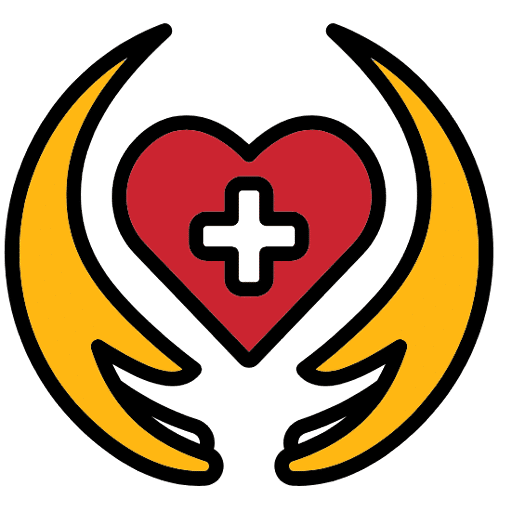If you’re considering a career as a medical assistant in Kansas City, one of your most important questions is likely: how much does the training cost? Whether you’re a recent graduate, changing careers, or looking for a short-term healthcare training program, cost plays a key role in selecting the right school. Tuition rates, program length, and available financial aid or employer sponsorships can vary dramatically between schools—ranging from free, employer-funded options to nearly $20,000 for comprehensive diploma programs.
This guide compares medical assistant programs across the Kansas City metro to help you make an informed decision—not just based on price, but on value, flexibility, and career outcomes.
Medical Assistant Program Cost Comparison – Kansas City
| School | Cost | Program Length | Online Available? | Externship | Cert. Prep |
| University Health (Apprenticeship) | Free (Paid while training) | 6 months | Partial | Yes | CMA |
| Meritas Health / Park University | Free (Paid training) | 14 weeks | Partial | Yes | CMA |
| Kansas City Sch. of Phlebotomy | $2,300 (+$300 externship) | 11 weeks | No | Optional | CCMA |
| Metropolitan Comm. College (MCC) | $2,795 | 12 months (self-paced) | Yes | Optional | CCMA |
| UCM (Lee’s Summit) | $3,995 | ~4 months (325 hrs) | No | Yes | CCMA |
| Mid-America College of Health Sciences | $9,800 | 22 weeks | No | Yes | CCMA |
| M2Y Career Academy | $9,800 | 6 months | No | Yes | CCMA + others |
| WellSpring (Certificate) | $17,400 | 10 months | No | Yes | CMA + CPT |
| WellSpring (AOS Degree) | $23,500 | 16–24 months | No | Yes | Multiple |
| Concorde Career College | $19,935 | 9 months | Partial | Yes (230 hrs) | Optional |
| Rasmussen University (Admin only) | Not listed (est. under $10K) | 9 months | Yes | No | Admin Cert |
What to Consider When Comparing Costs
1. Free Isn’t Always Free—But It Might Be Best
Programs at University Health and Meritas Health are completely tuition-free and include paid training, making them the most cost-effective paths. However, they come with employment commitments—University Health may expect post-training employment, while Meritas requires 18 months of work at an MH clinic.
2. Accelerated vs. Comprehensive Programs
Short programs like those at KC School of Phlebotomy (11 weeks) and UCM (4 months) allow faster entry into the field but might offer less depth or fewer career pathways than longer diploma or degree programs.
If you’re aiming for entry-level work quickly, these can be perfect. But if you want upward mobility or broader credentials, Concorde or WellSpring’s AOS may be better—if you can afford the price tag.
3. Externship Experience Is Crucial
Programs with built-in externships (like Mid-America, UCM, or KCKCC) give you clinical experience that employers expect. Some programs (e.g., MCC and KCSP) offer optional externships at additional cost or with conditions.
4. Online Learning vs. Hands-On Training
If your schedule requires flexibility, MCC, Rasmussen, and Concorde offer partial or fully online programs. Keep in mind that online-only options may lack externships, which can limit your real-world experience and confidence in clinical roles.
5. Hidden Fees and Certification Requirements
Always ask:
- Is the certification exam fee included?
- Are there uniforms, books, background checks, or immunization requirements?
- Will you need to retake CPR training or pay for recertification?
Programs like KCSP and MACOHS are transparent with all-in costs, while others may require extra fees not listed upfront.
Ways to Reduce Your Out-of-Pocket Costs
✅ Apply for Employer-Funded Programs
- University Health and Meritas Health cover training and pay you to learn.
- These options are ideal if you’re okay with working for the employer after graduation.
✅ Use Workforce Programs and Local Grants
- Mid-America and UCM often partner with Great Jobs KC, Missouri Full Employment Council, and Kansas Workforce Partnership—students may receive full tuition coverage if eligible.
- Always ask if the school helps with these applications.
✅ Choose a Community College
- Kansas City Kansas Community College (KCKCC) and Metropolitan Community College offer some of the most affordable programs for local residents—starting at $107 per credit hour at KCKCC.
✅ Ask About Payment Plans
- KCSP, MACOHS, and WellSpring offer flexible installment plans—sometimes at no additional cost.
The “best” medical assistant program in Kansas City depends on your goals, timeline, and financial situation. Here’s a quick breakdown:
